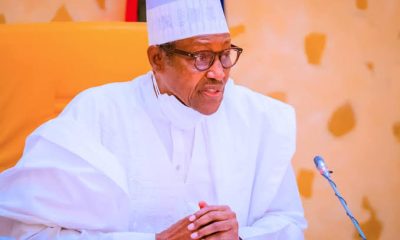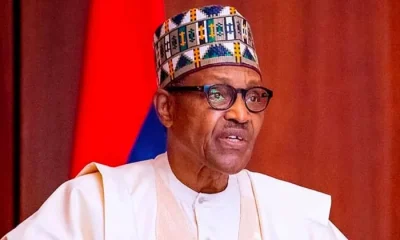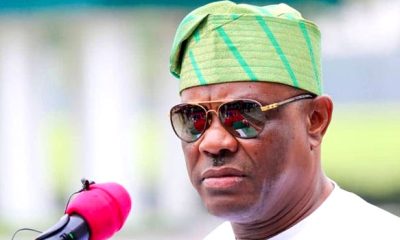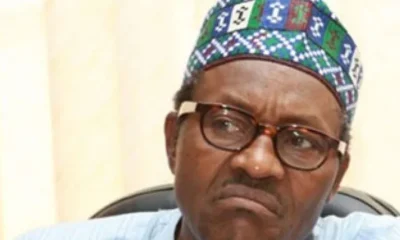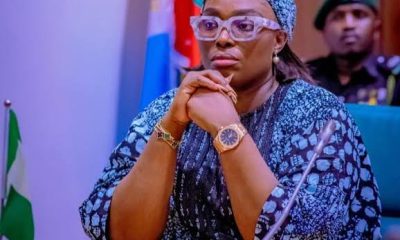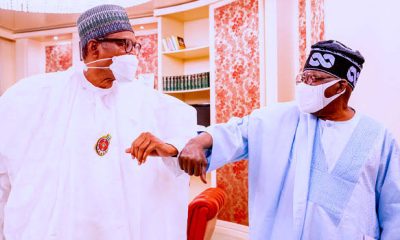Opinion
In Buhari’s Absence, Osinbajo Happily In Charge Of His Chair, Not Country
By Emmanuel Aziken
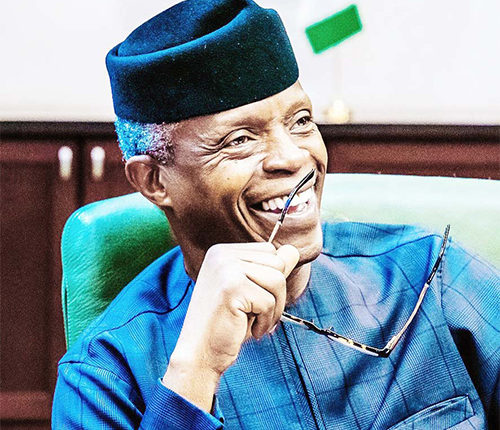
As he embarked on his medical trip to the United Kingdom last Sunday, President Muhammadu Buhari in a session with newsmen at the airport disclosed that in his absence Vice-President Yemi Osinbajo would be in charge.
“Well, I cannot claim to be doing the work alone. The government is fully represented. The Vice President is there. Constitutionally, when I’m away, he’s in charge,” the president said in affirmation of the recognized constitutional order.
President Buhari was to add immediately “we have the Secretary to the Government of the Federation and then the Chief of Staff, so, there’s no problem.”
So, even if Osinbajo was the first one he mentioned, the dialectics of the President’s departure note as seen in the second paragraph would be that with the SGF and the Chief of Staff around the vice-president, that there would be no problem.
Of course, we remember the problem with the last time that the president departed the country when he left Osinbajo truly in charge and without the SGF and then Chief of Staff (the late Abba Kyari) to monitor him.
The problems of that presidential holiday in 2018 subsists and have led to an erosion of trust between the president’s camp and the Vice-President.
Because your correspondent has in the past dug deep into that relationship, some in the corridors of power had tried to wrongly foist on him the authorship of what has now emerged as the Trust Deficit Theory that has continued to impede the transfer of power when constitutionally required by Buhari to his deputy.
Central to the theory were some reported and unreported actions taken by Osinbajo which were said to have seriously grieved the president and his minders.
Among them was the firing of the Director General of the Department of State Services, DSS, Lawal Daura. A man that was fetched out of retirement by Buhari to handle his internal security was fired by his deputy reportedly against the advice of a prominent national leader of the APC that was at one time also reputed as the VP’s godfather.
While the dismissal of Daura was a cheer to many, that decision and some others are at the centre of the trust deficit that have led to the refusal by Buhari to formally transfer power to Osinbajo even when constitutionally required.
So, in the face of the clamour in many sections of the APC that Osinbajo may be the surest bet for Buhari and APC to retain power, it is no shock that he is not in the permutation of those around the president.
Indeed, just hours after the president departed for London, leaving behind bedlam in the APC, party enthusiasts and officers did not look towards Osinbajo for the resolution of the most serious crisis to have shaken the ruling party.
Rather than confer with Osinbajo who should be in charge, the report at the weekend was that some senior government officials took the six hour flight to London to confer with Buhari on issues affecting the polity.
The distrust between Buhari and Osinbajo is indeed not new in presidential style democracies.
In the United States for example, Mr George Bush in 1988 became the first sitting vice president in generations to succeed a president. Indeed, the relationship between Mr Bush and the Ronald Reagan White House was a little similar to that between Buhari and Osinabjo.
Reagan, an icon of the conservative right was worshiped as Buhari is worshiped in several quarters in Nigeria. Mr Bush was, however, loathed in the inner circles of the Reagan presidency just as Osinbajo is held within the Buhari presidency.
Despite being held down by old age related symptoms, the Reagan White House preferred to deal with the president’s established friends and true conservative believers in pushing forward policies.
That is why Bush did not know of the Iran-Contra affair. On the outside, however, President Reagan and Bush carried out with an amity, after all, Reagan was a jolly good man who was being shepherded by his aides.
Bush with his experience of the Republican party establishment, having been a former chairman of the Republican National Committee persevered within the administration, held on to win the nomination and the presidency against a Democratic Party that was short of, if not foolish in its ideas with Micheal Dukakis as candidate.
The triumph by Bush Snr. was itself historic. In Nigeria we have also seen the same kind of hostility between governors and their deputies. The few cases where governors have been succeeded by their sitting deputies transformed to war as in Kano (Rabiu Kwankwaso and Abdullahi Ganduje) and Zamfara (Ahmed Yarima and Mahmud Shinkafi)
Osinbajo, it seems, may have decided to follow the Bush philosophy to break down the hostility of Buhari’s men by selling himself to the party.
However, how Osinbajo can assert himself given the fact that he is today only in charge of the chair he sits on will be miraculous.
Send Us A Press Statement Advertise With Us Contact Us
And For More Nigerian News Visit GWG.NG



